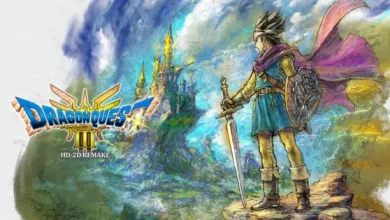Bartender Glass of God Anime Series Review – Review

Despite my intense personal dislike of alcohol (for no profound reason other than it makes me feel ill and I hate the taste), I nonetheless love the original 2006 TV anime adaptation of the Bartender manga. In the same way that Laid Back Camp appeals to fans who have no intention of braving the elements protected only by a thin sheet of canvas and a drafty sleeping bag, Bartender‘s immaculate vibes and comfortingly stagy presentation appeals to those with no intention of darkening any bar’s dingy doorstep.
Those quaintly presented eleven episodes of animated soul food (or drink) represent the magnetic storytelling any truly “adult” anime can achieve regarding any subject, whether or not the viewer is interested in it. Bartender (2006) is a collection of disparate vignettes about adults of all ages, their work and relationship troubles, and how a period of solace in Ryu’s bar, when presented with the correct cocktail, is enough to heal their mental wounds.
Ryu compares the bartending profession to that of a physician in that bartenders can never tell lies. While the alcohol they serve can be poison in large quantities, in sensible volumes, it’s like medicine. In this previous series, the focus is not so much on Ryu but on his patrons and their stories. Each episode is presented as a short play, with narration, spotlights, and the fourth wall breaking, which enhances the theatrical vibe. Even the CG is quaint and tastefully used to animate fluid dynamics and the dimly lit bar set. If Bartender could be described in a single word, it would be “classy.” I could almost consider showing it to my extremely animation-cynical but scotch whisky-loving father.
How does this modern version of Bartender, now given the subtitle Glass of God, compare? Not well, unfortunately. Gone is the narration and other stagy aspects of the presentation and structure. No longer is this a collection of vignettes with characters that step in and out of one another’s stories, but a more serialized iteration. While it shares many of the same characters and situations, the details are remixed and reinterpreted in perhaps the most dull and uninspired fashion possible. Scenes once presented in flashback or via clever transitions are now merely related in flat conversation, robbed of their significance and emotional potency.
Take secondary protagonist Miwa’s backstory, for instance. In the 2006 series, Miwa got the entire second episode to herself to relate her tragic family history and the business tensions between her father and grandfather. It included her failed attempt to reconcile that, as a small child, she blamed herself for her family issues and her father’s eventual accidental death. This was a beautiful, emotionally intense episode with an excellent and powerful payoff as Ryu helped her mend her relationship with her grandfather and resolve her misplaced guilt. While Miwa would appear in most episodes going forward, almost like a co-presenter, she moved on with her life.
The new version of Miwa is the primary instigator of Bartender: Glass of God‘s new ongoing plot, and she’s just not as interesting. For one, although her character design is still attractive, it appears to have been engineered by the committee to be as bland and generic as possible. This is a problem with most other characters – there’s little to separate them from their contemporaries in the multitudes of other mass-produced mid-budget schedule-filler anime. Bartender: Glass of God has no visual identity, which is tragic because the original design for Miwa was strikingly beautiful.
Eventually, Miwa’s history is addressed late in the new series, but it might as well be a footnote for the lack of emotional heft it’s given and the incredibly flat way it’s handled. If there was a word to encapsulate the experience of Bartender: Glass of God, it would be “flat.” Like a cocktail, the ingredients are all there, but they’ve been blended without skill or care, lacking fizz, leaving only a hint of the flavor and kick of the original.
Whereas the original version of Ryu was mostly a plot device, with only one or two episodes delving into his history and personality, in Glass of God, we spend much more time with him outside the bar. This does have the effect of humanizing him, to a degree, but it does rob him of mystique, making him a more generic “hard-working, nice guy” stereotype. Instead of Ryu inhabiting a cozy, dark, slightly mysterious twilight world, we see him wandering in broad daylight, going on day trips. While these scenes are pleasant enough, they do little to elevate an otherwise extremely ordinary, workmanlike production. There’s no inspiration here.
Studio Liber‘s only previous production credit is 2023’s The Ice Guy and His Cool Female Colleague, which seemed to receive a fairly middling reception overall. Liber‘s take on Bartender is exactly that – middling. It’s not terrible; it still kept my attention, but it rarely inspired me. If I hadn’t already watched the 2006 version, I probably wouldn’t have sought it out on the back of watching the new version; in fact, I probably wouldn’t have finished watching Glass of God after its first few installments.
While there are many similarities between both seasons, enough that Glass of God is classed as a remake rather than as a separate entity, almost every production choice – from character designs to backgrounds to lighting, music, structure, and storytelling style is uninspired and bland compared to the original. I wanted to like this as much as I did the 2006 version. Still, all I can suggest to potential viewers is to forgo this imperfect Glass of God and seek out the superior blend of the original – it’s incredible what a skilled pair of hands can produce with the same base ingredients.
Source link
#Bartender #Glass #God #Anime #Series #Review #Review


